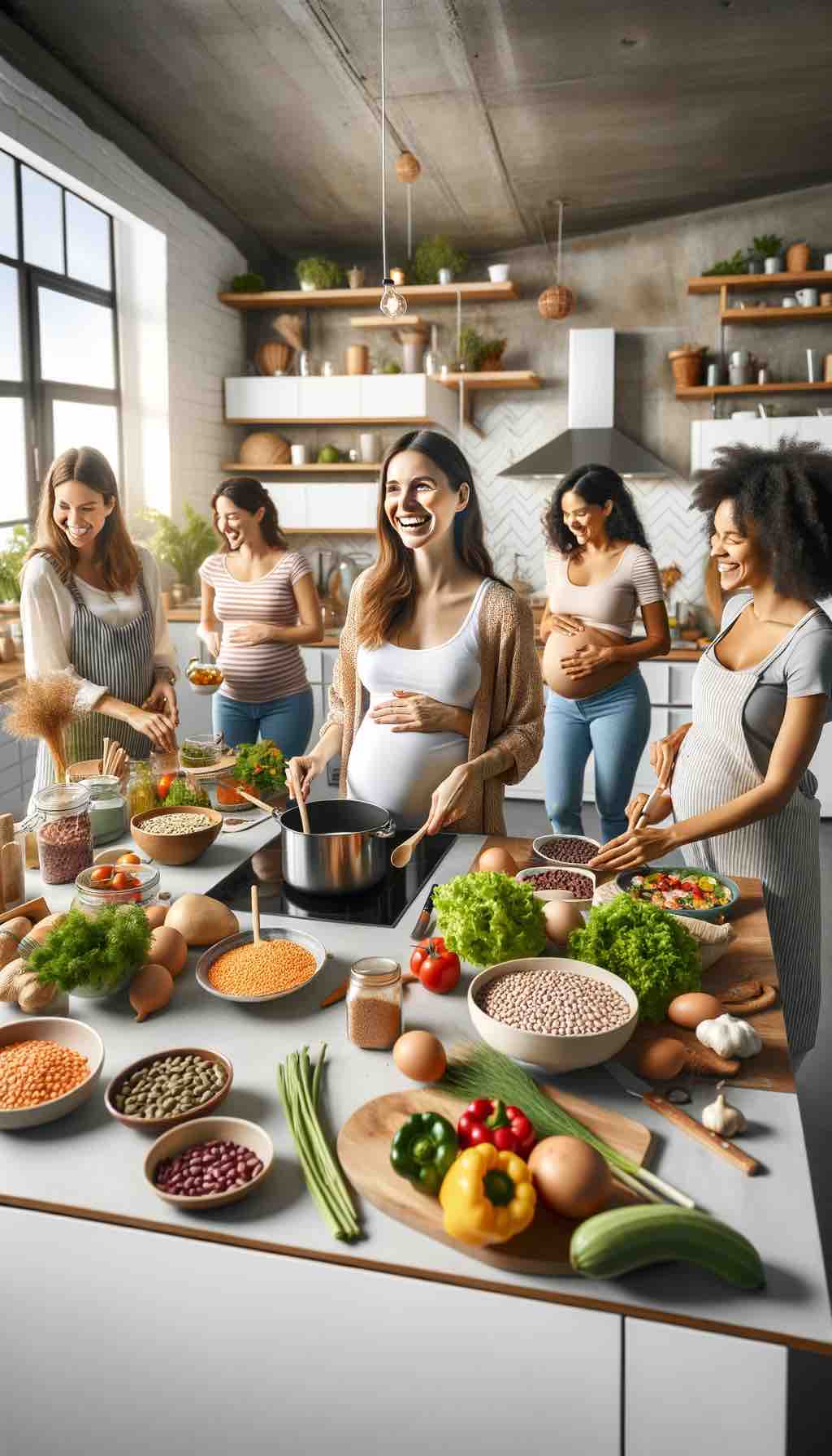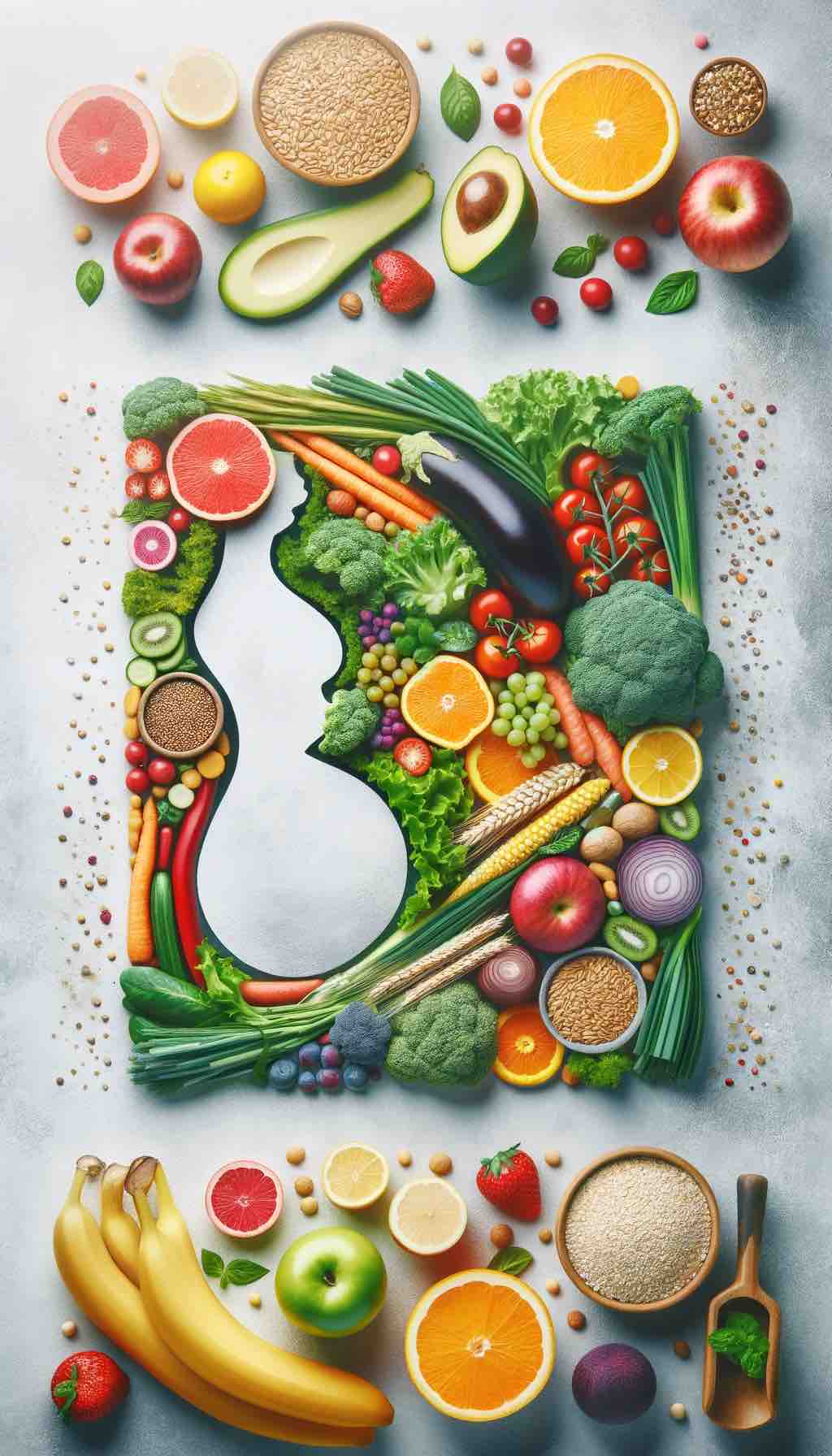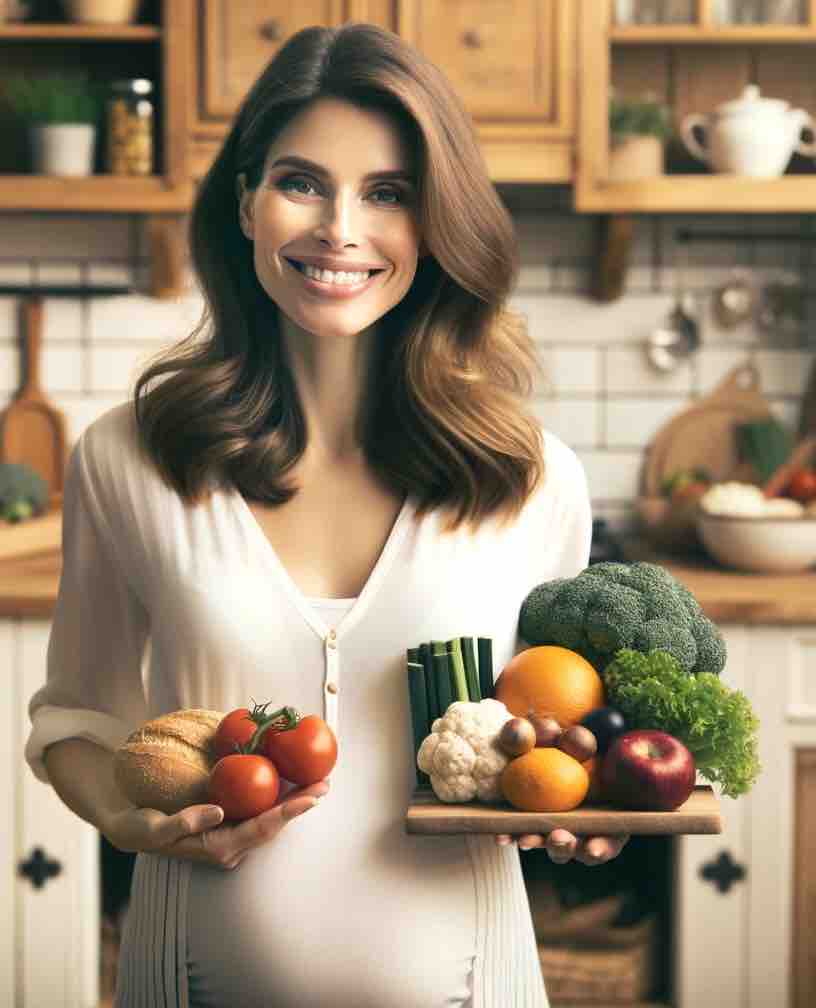
Introduction:
Hello, soon-to-be moms! Are you looking for ways to boost your folate intake during pregnancy? You’re in the right place! Folate, a crucial B-vitamin, plays a vital role in the growth and development of your baby. But don’t worry, getting your daily dose of folate doesn’t have to be a chore. Lentils and beans are not only rich in this essential nutrient but they’re also delicious and versatile in the kitchen. Let’s dive into the world of legumes and discover top recipes that are both mouth-watering and baby-friendly.
Section 1: The Nutritional Benefits of Lentils and Beans in Pregnancy:
Lentils and beans aren’t just tasty; they’re nutritional powerhouses, especially for pregnant women. Rich in folate, they help prevent neural tube defects and support your baby’s development. They’re also packed with fiber, protein, iron, and other essential nutrients that keep both you and your baby healthy. Plus, they’re great for maintaining steady blood sugar levels, a common concern during pregnancy.
Section 2: Top 5 Lentil and Bean Recipes for Pregnancy:
- Lentil Pitas with Beans and Red Cabbage (Source: Bump, Baby and You)
- Ingredients: This dish calls for a hearty mix of canned lentils and garbanzos (chickpeas), combined with the aromatic presence of chopped garlic and cilantro. Add in some lemon juice, shredded red cabbage, low-fat Greek yogurt, ground cumin, crushed red pepper, pita bread, breadcrumbs, and olive oil.
- Preparation: Puree half a can of lentils and garbanzos along with cumin, cilantro, parsley, and garlic until smooth. Mix this puree with breadcrumbs and the remaining lentils, seasoning with salt and black pepper to taste. This forms the base for your patties. Separately, prepare a tangy cabbage mix with lemon juice and a spiced yogurt blend. Fry your patties until golden and assemble your pitas with these delicious layers.
- Serving Suggestion: These pitas are perfect for a nutritious lunch, packed with folate and flavor.
- Mama-to-be Lentil Loaf with Heirloom Tomato Jam (Source: Ovia Health)
- Ingredients: Start with green lentils, oats, and toasted walnuts. You’ll need olive oil, diced onions, carrots, and fennel, along with minced garlic. Season with dried oregano and sea salt. Bind it together with eggs, and enrich the flavor with nutritional yeast. For the jam, use heirloom baby tomatoes, apple cider vinegar, and coconut sugar.
- Preparation: Cook the lentils and blend oats and walnuts into a coarse flour. Sauté the diced veggies and garlic, combining them with cooked lentils, oat-nut mixture, eggs, nutritional yeast, and flaxseed meal. Bake this mixture in a loaf pan. For the jam, cook the tomatoes with vinegar and sugar until it reaches a jam-like consistency. Top the baked loaf with this jam for a sweet and savory finish.
- Serving Suggestion: This loaf is a wonderful dinner option, providing a comforting and nutrient-rich meal.
- Kale, Black Bean, and Avocado Burrito Bowl (Source: Cookie and Kate)
- Ingredients: Fresh kale, canned black beans, ripe avocado, and your choice of additional veggies and dressings.
- Preparation: Start by massaging your kale to soften it, then warm up the black beans. Cube the avocado and assemble your bowl by layering kale, beans, avocado, and any other veggies you desire. Top it with your favorite dressing or a simple squeeze of lime and a sprinkle of salt.
- Serving Suggestion: A fantastic option for a quick and healthy lunch, this bowl is as versatile as it is nutritious.
- Vegetarian Chili (Source: Cookie and Kate)
- Ingredients: A mix of beans such as kidney, black, and pinto beans, along with diced tomatoes, bell peppers, onions, garlic, and a blend of spices like cumin and chili powder.
- Preparation: Begin by sautéing the onions and garlic, adding the bell peppers and spices next. Stir in the beans and tomatoes, and let the chili simmer until the flavors meld together.
- Serving Suggestion: Ideal for a cozy dinner, this chili is both comforting and packed with nutrients.
- Butternut Squash Chipotle Chili with Avocado (Source: Cookie and Kate)
- Ingredients: Butternut squash, chipotle peppers in adobo sauce, black beans, canned tomatoes, onion, garlic, and spices. Top it off with slices of creamy avocado.
- Preparation: Roast the butternut squash until tender. In a large pot, cook the onion and garlic, then add the spices, chipotle peppers, black beans, and tomatoes. Add the roasted squash and let the chili simmer. Serve with slices of avocado on top.
- Serving Suggestion: This chili is a wonderful option for those looking for a meal with a kick. The avocado adds a creamy balance to the spicy flavors.
Each of these recipes not only provides a delightful culinary experience but also ensures you are getting a healthy dose of folate and other essential nutrients for your pregnancy. Remember, for more detailed instructions and serving sizes, you can search for these recipes at their respective sources. Enjoy your cooking journey!
Section 3: Cooking Tips and Considerations:
- Remember, you don’t have to soak lentils like other pulses, making them a quick and convenient option.
- Feel free to adjust spices according to your taste and tolerance, especially during pregnancy.
- If any recipe calls for ingredients you’re not comfortable with, don’t hesitate to swap them out. Your and your baby’s health come first!
Conclusion:
Incorporating lentils and beans into your pregnancy diet is a tasty and effective way to ensure you’re getting enough folate. These recipes are just a starting point – feel free to get creative in the kitchen! Always listen to your body and consult with your healthcare provider about your dietary choices.
Call to Action:
I’d love to hear from you! If you try any of these recipes or have your own favorite lentil and bean dishes, share them in the comments below. Let’s make this pregnancy journey delicious and nutritious together!
FAQs
- What is folate and why is it important during pregnancy?
- Folate is a B-vitamin essential for cell growth and the development of the baby’s neural tube. Adequate folate intake helps prevent birth defects like spina bifida and anencephaly.
- Can I get enough folate from food alone during pregnancy?
- While a diet rich in folate can significantly contribute to your daily intake, it’s often recommended to also take a prenatal vitamin with folic acid to ensure you’re getting enough.
- Are lentils and beans safe to eat during pregnancy?
- Yes, lentils and beans are safe and highly beneficial during pregnancy. They are excellent sources of folate, protein, fiber, and iron, which are crucial for both mother and baby’s health.
- How can I make lentils and beans more digestible?
- Soaking lentils and beans before cooking can help make them more digestible by reducing phytic acid. Cooking them thoroughly also aids in digestion.
- Can I freeze these lentil and bean dishes?
- Yes, most lentil and bean dishes freeze well. Make sure to store them in airtight containers and they can last for up to 3 months in the freezer.
- Are these recipes suitable for vegetarians and vegans?
- Yes, all the recipes provided are either vegetarian or vegan, making them suitable for those following plant-based diets.
- How can I incorporate more variety into these dishes?
- You can add different spices, herbs, or vegetables to these dishes to suit your taste preferences. Mixing different types of lentils and beans can also add variety.
- What if I have a specific food allergy?
- If you have a food allergy, always check the recipe ingredients and make necessary substitutions. For example, if you’re allergic to nuts, omit them from the recipes or use a suitable alternative.
- Can these dishes be part of my post-pregnancy diet?
- Absolutely! These dishes are nutritious and beneficial even post-pregnancy, especially if you are breastfeeding, as they can help in maintaining a healthy nutrient intake.
- Where can I find more folate-rich recipes?
- You can find more folate-rich recipes on various cooking blogs, nutrition websites, and in pregnancy nutrition books. Don’t hesitate to experiment with ingredients rich in folate, like leafy greens, citrus fruits, and fortified cereals.
Blog Tags: Pregnancy Nutrition, Healthy Eating, Folate-Rich Recipes, Vegetarian Pregnancy, Vegan Pregnancy, Lentil Recipes, Bean Dishes, Prenatal Health, Cooking for Pregnancy, Maternal Wellness











